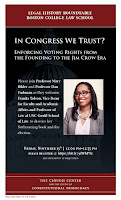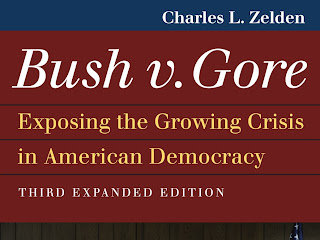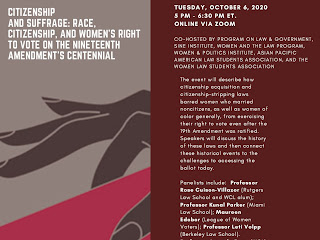[We have
the following announcement. DRE]
The
St. John’s Law Review invites you to explore the past, present, and future of women’s rights in the United States during our 2020 symposium Commemorating the 100th Anniversary of the 19th Amendment. Registration
here.Women have always played a vital role in shaping the cultural landscape of America by persistently demanding equality and opportunity. In 1920, the first women exercised their newly secured constitutional right to participate in our democracy, 244 years after this country’s founding. For most non-white women, however, the fight for voting rights continued for decades. For some, the fight is ongoing.
Now, 100 years later, immense progress has been made. The current landscape would be unrecognizable to the suffragettes of the early 20th century. Gender equality, however, is still far from a reality. This symposium will explore the state of gender equality in America, what we can learn from the past 100 years, and what the next 100 years should look like.
Keynote Address:
Taunya Banks, University of Maryland School of Law
Panelists:
Alissa Gomez, University of Houston Law Center
Kit Johnson, The University of Oklahoma College of Law
Cassandra Jones Havard, University of Baltimore School of Law
Nora Demleitner, Washington and Lee University School of Law
Mikah K. Thompson, University of Missouri-Kansas City School of Law
Nicole Ligon, Duke Law School
Moderators:
Cheryl L. Wade, St. John's University School of Law
Rosemary Salomone, St. John’s University School of Law
Catherine Duryea, St. John’s University School of Law












